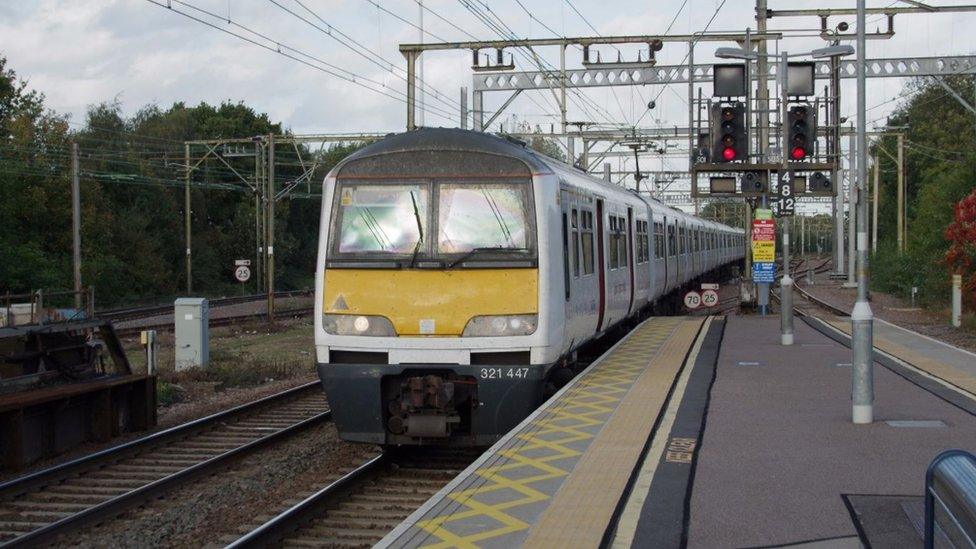South Western Railway strike: Workers begin four-day walkout
- Published
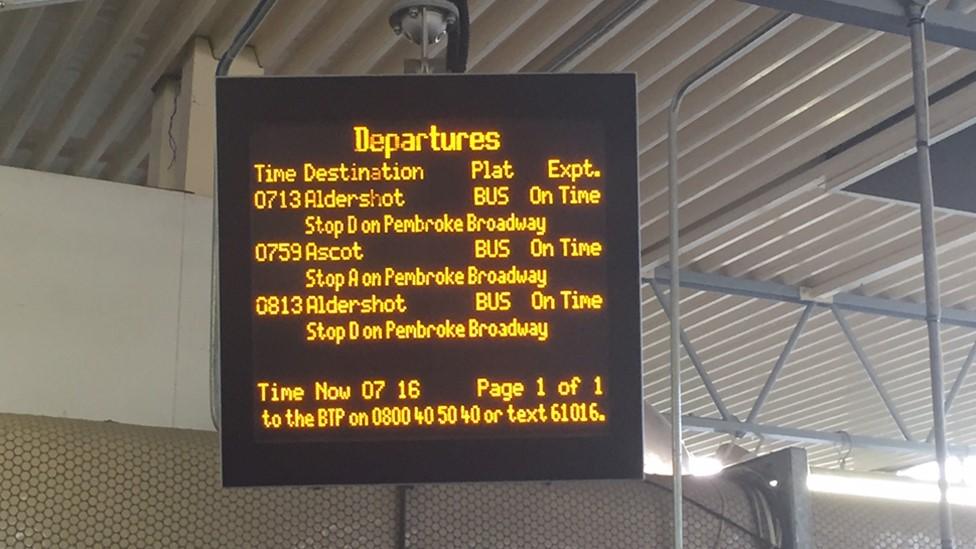
Buses are replacing trains from stations including Camberley in Surrey
Strike action has resumed on South Western Railway (SWR) as part of a long-running dispute over train guards.
SWR is cancelling 800 trains a day until the end of Monday - about half its services - following the walkout by National Union of Rail, Maritime and Transport Workers (RMT) members.
The union accused SWR of "rowing back on their public pledges" about the future function of guards.
The operator said it was "committed to finding a solution" to the dispute.
SWR, which runs services between London and Bristol, Exeter, Portsmouth, Reading and Weymouth, has been in dispute with the RMT since November 2017.
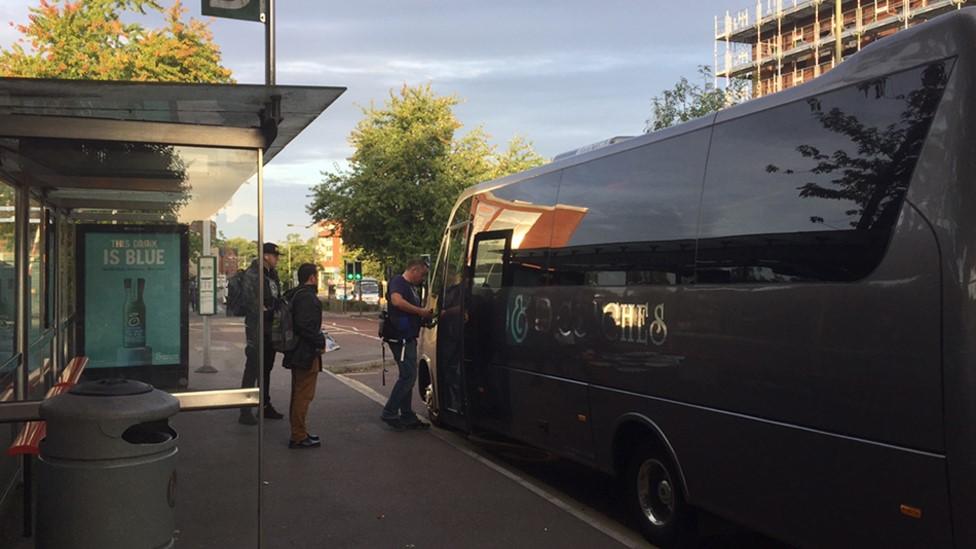
Early commuters boarded replacement buses at Camberley
The union said its members were "rock solid and united" in supporting the action.
Travellers took to social media to complain about delays and crowded trains on the first morning of the strike.
Allow X content?
This article contains content provided by X. We ask for your permission before anything is loaded, as they may be using cookies and other technologies. You may want to read X’s cookie policy, external and privacy policy, external before accepting. To view this content choose ‘accept and continue’.
Allow X content?
This article contains content provided by X. We ask for your permission before anything is loaded, as they may be using cookies and other technologies. You may want to read X’s cookie policy, external and privacy policy, external before accepting. To view this content choose ‘accept and continue’.
RMT general secretary Mick Cash said members had no choice but to continue the action because of the company's "unremitting failure" to rule out driver-only operation.
"They are angry and frustrated that SWR have kicked talks into the long grass and failed to bolt down an agreement that will guarantee the role of the guard on the train," he said.
"Our members believe that they are being mugged off by the company in protracted talks."
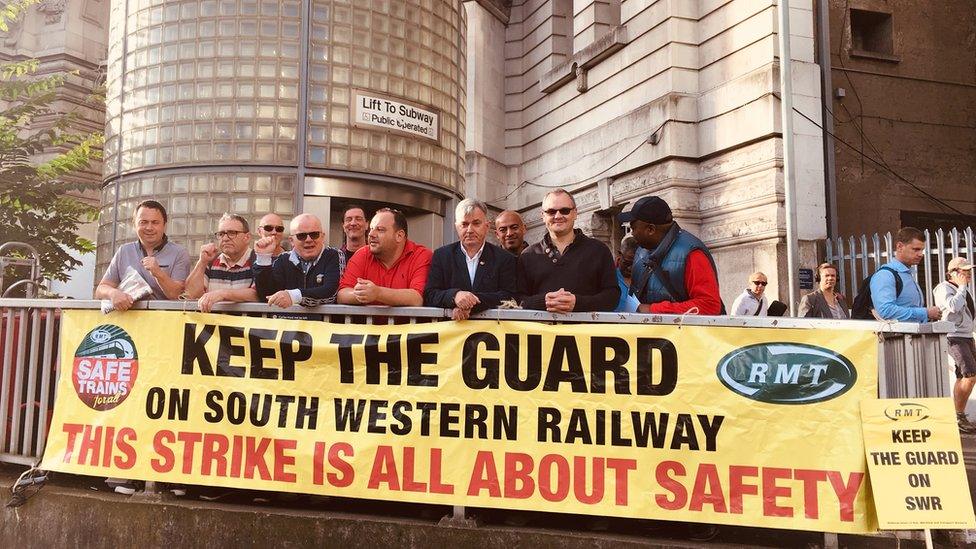
RMT members joined picket lines on the first day of the walkout
SWR said: "The RMT has always said it wanted us to keep the guard on every train which is what we have offered as part of a framework agreement.
"We want to move the conversation on to how we operate our new trains and take advantage of the new technology on board to benefit our customers."

Analysis
By Paul Clifton, BBC South transport correspondent
Over the next four days, a few hundred guards will disrupt services that carry more than 100,000 passengers a day.
If you think you've heard it all before - yes, you have, on the 34 previous strike days. Since the first strike back in November 2017, almost nothing has changed.
The company says it will have a guard on every train - including on 750 new carriages that have yet to be built, which will be technically capable of "driver-controlled operation" without a guard.
But the two sides cannot agree about exactly what the guard's specific duties would be on the new trains.
Two years into this troubled franchise, for passengers things are still not getting better.

The annual Bournemouth Air Festival - which began on Thursday and attracts up to one million people - is one of the weekend events that could be affected by the strike.
Spokeswoman Grace Loveless said: "Obviously we'd like people to take public transport so it's a bit of a shame, but we do work closely with South Western Railways and they'll be committed to helping where they can."
The union has previously reached agreement with Greater Anglia over the future of guards.
- Published19 June 2019
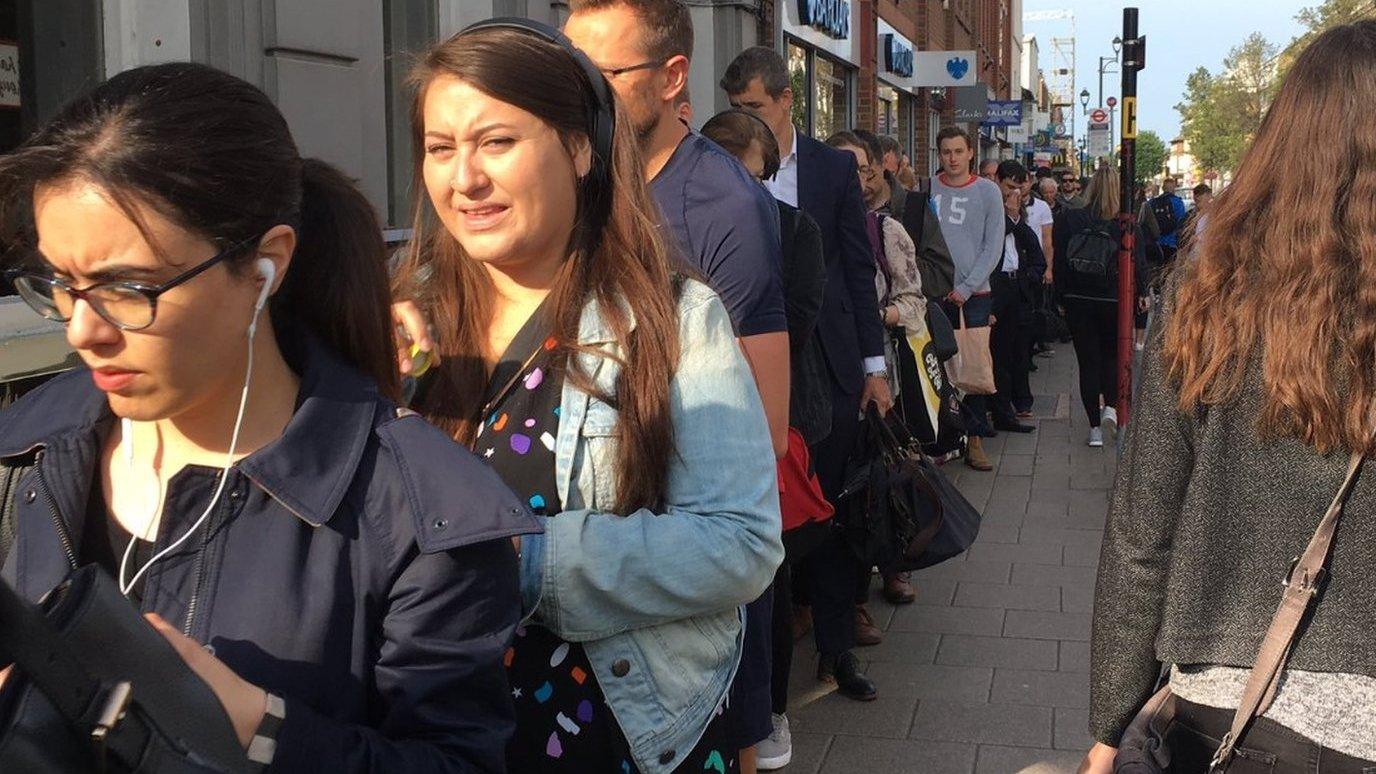
- Published18 June 2019
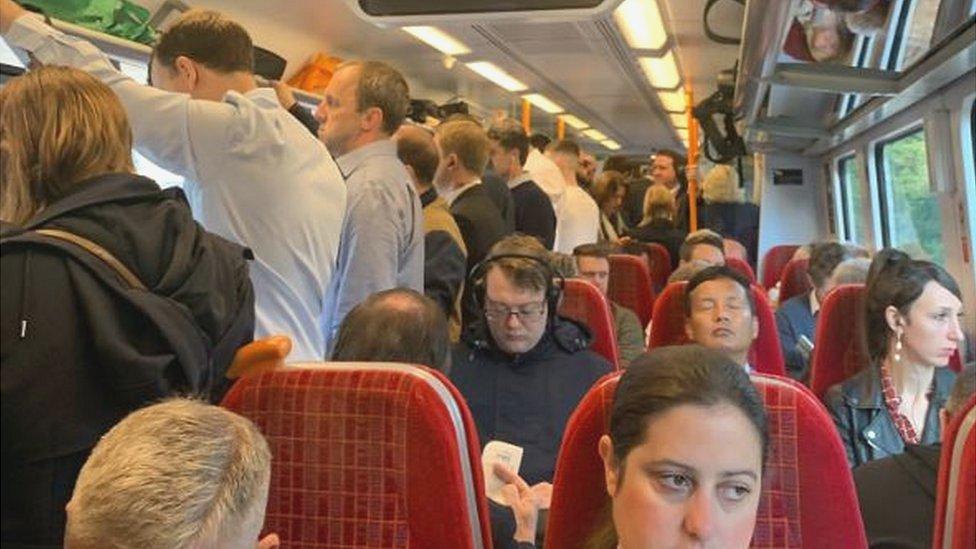
- Published18 February 2019
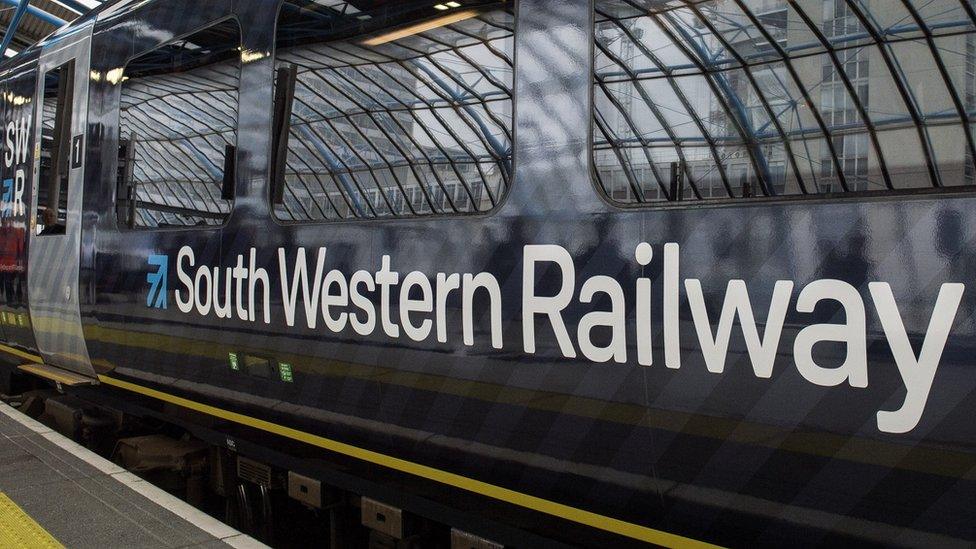
- Published31 August 2018
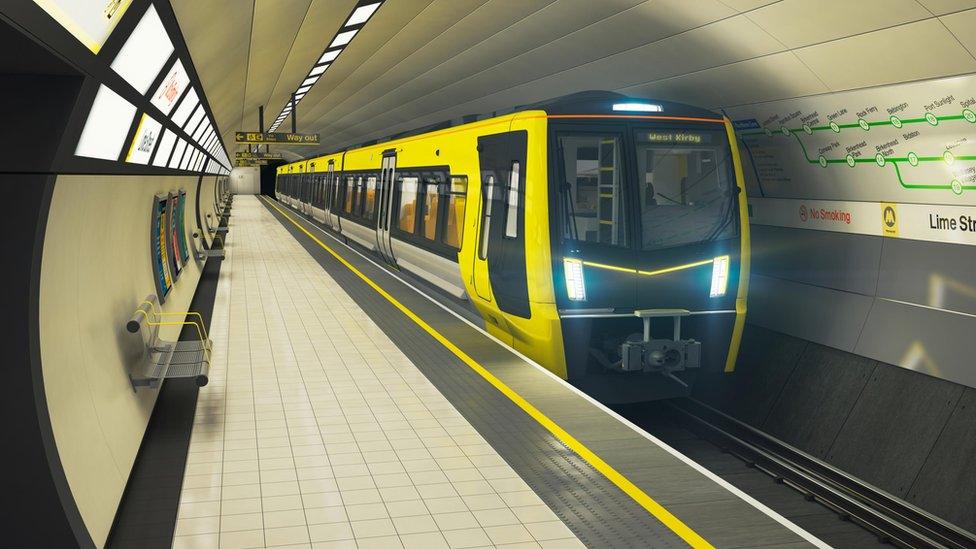
- Published19 July 2018
